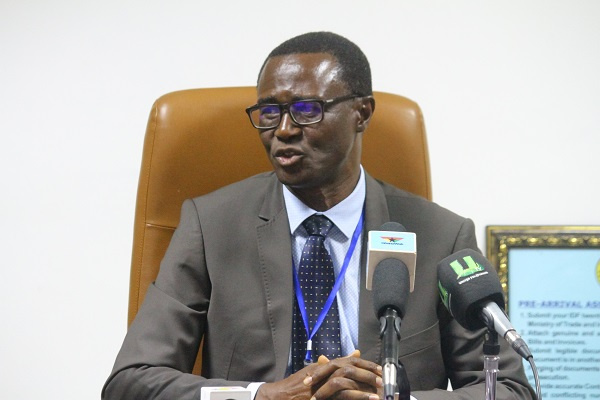The Ghana Revenue Authority (GRA), after the completion of its comprehensive integration exercise with other government institutions, has observed that out of the 14 million registered taxpayers on its books, a majority 8 million have not been filing their tax returns – leaving 6 million complying with the tax laws.
The integration saw Ghana Revenue Authority (GRA) and the Registrar-General’s Department (RGD) collaborate with the National Identification Authority (NIA) to convert the Ghana Card Personal Identification Numbers into Taxpayer Identification Numbers (TIN) for tax identification purposes.
According to Commissioner-General, Ammishaddai Owusu-Amoah, completion of the integration saw the registration of 14 million taxpayers; but the majority are not filling their tax returns, even though they might be paying their taxes.
“From the data, you find out that there are a number of people that are supposed to be in the legal profession, medical profession, engineers, financial sector among others; but there is no evidence to the effect that they have filed their tax returns.
“You find people who are above the age of 35 and below the age of 65 who have residence in the top-10 affluent places in Ghana – like Labone, Cantonments, East Legon, yet you do not find their names in the database. Fortunately, we have their names, numbers and Ghana Post GPS, and we will engage them.”
He said that the development can be explained in two ways. “It can be that he is a doctor or a nurse and is paying the Pay as You Earn (PAYE) and seems to be paying his or her taxes but has not filed anything – meaning that he or she has not previously registered for TIN. It doesn’t mean that he or she is not paying; it simply means that he is not filling. But there may be others who are also not paying anything at all”.
As a result, the GRA is putting in mechanisms to engage all people who are not filing their tax returns to do so by taking advantage of the tax waiver introduced in the 2021 budget and which ends in September.
Speaking at an event organised by the Ghana National Chamber of Commerce and Industry (GNCCI) dubbed ‘Time with The Commissioner-General’, Mr. Owusu-Amoah said that it is important for every individual to file his or her tax returns, as a lot of effort will be put into engendering compliance.
The Vice President of the GNCCI, Victoria Hajar, on her part noted that: “There is no gain-saying that it is the private sector that pays tax and not government; and as such, to improve tax administration will require regular engagement with private sector players,” she said, adding that the Chamber’s assessment of the business performance of 3,000 companies in the country showed that the regulatory environment (i.e., taxes, interest rate, etc.) does not engender business growth and value.
She noted that GRA’s cooperation with the Chamber in implementing recommendations of the advocacy on streamlining the duty drawback process is commendable. “The timely response in paying overdue duty drawback and significant efforts in addressing the technical challenges have ensured improved confidence in the process,” she said.










